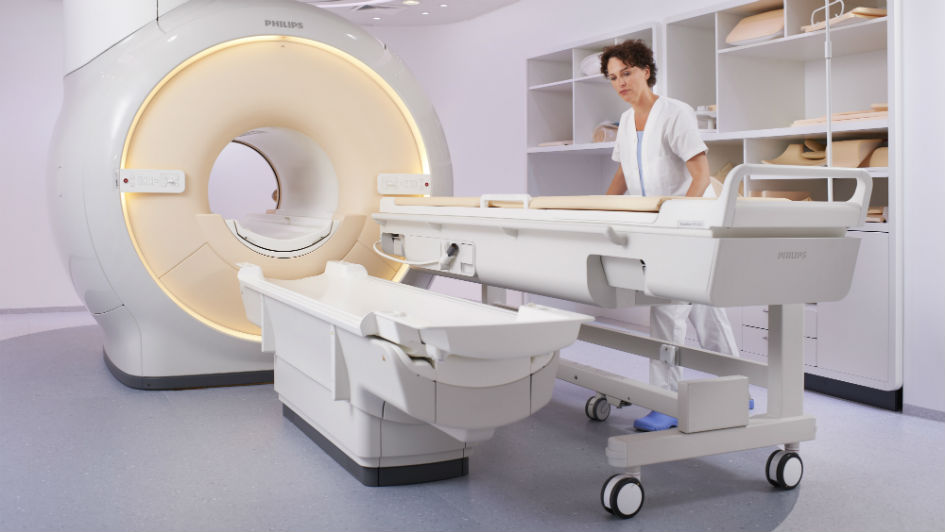
Combining targeted, focused ultrasound and immunotherapy drugs could work as a new treatment for pancreatic cancers, a new study has shown.
A team led by scientists at The Institute of Cancer Research, London, targeted pancreatic tumours in mice with high intensity focused pulses of ultrasound.
The technique, developed at the ICR, uses a beam of focused sound waves to vibrate cells and tissues and has shown potential in the clinic as a cancer treatment.
In this study, published in the Journal of the Royal Society Interface and largely funded by the Focused Ultrasound Foundation, the scientists used pulsed focused ultrasound, ‘pHIFU’, alongside injections of antibodies that mimic the effects of immune checkpoint inhibiting drugs.
Combining pHIFU and immunotherapy
Sometimes cancer cells evade attack from the immune system by using an immune cell brake, a ‘checkpoint’ – preventing the immune system from doing its job. Using immune checkpoint inhibitors releases this brake, allowing immune cells to attack cancer.
These immunotherapy drugs, such as pembrolizumab and nivolumab, are routinely used in the treatment of some cancers, but many patients – including most with pancreatic cancer – do not respond well to them.
However, combining immune checkpoint inhibitors with other treatments such as other drug types, radiotherapy or ultrasound could boost their effectiveness. HIFU can break up dense tissue structures that can exclude these drugs from tumours.
The researchers found that mice receiving the HIFU-antibody combination lived longer than mice treated with neither or just one of the treatments, and performed better in several other measures of treatment effectiveness.
The pulsed HIFU exposure leads to the formation of numerous cavities – ‘acoustic cavitation’ – in the tumours. These can break up the tissue and allow immune cells to enter tumours more easily.
Treating pancreatic tumours
Some other recent studies have shown exciting potential for HIFU but in tumours grown just under the skin, where sound waves can penetrate more easily than deeper within tissue. Importantly, the mice in this study had ‘orthotopic’ pancreatic tumours, meaning that they grow in the pancreas itself, initiated by cancer cell injection.
This study proves the potential of the combination more convincingly than previous studies in deep-lying tumours in organs such as the pancreas – as well as being the first ever study to show the anti-cancer benefit of HIFU and immune checkpoint inhibition in pancreatic cancer.
One point of particular interest to other HIFU researchers is the evidence for significant acoustic cavitation within tumours.
Acoustic cavitation is the term used to describe the rapid vibration of tiny ‘microbubbles’ of gas by the sound waves, and it is this which is thought to be enhancing the uptake of immune cells into the tumours by breaking them up – the shaking breaks up the tumour cells, causing them to spill their contents.
The spill then also alerts the immune system, attracting immune cells to the site to fight the cancer.
Targeting the tumours with rapid ‘on-off’ pulses of ultrasound lasting milliseconds enhances the treatment effectiveness, the researchers believe – and could be better than using a continuous HIFU beam.
The mice had tumours of a type called pancreatic ductal adenocarcinoma (PDAC), which accounts for the majority of human pancreatic cancer. Pancreatic cancer represents a cancer of significant unmet need in terms of its treatment, with life expectancy improving little over the past 40 years.
Paving the way for clinical trials
Study lead Professor Gail ter Haar, Professor of Therapeutic Ultrasound at The Institute of Cancer Research, London, and founding President of the International Society for Therapy Ultrasound, said:
“Our study shows that mice with pancreatic cancers lived longer when treated with a combination of pulsed HIFU and antibodies to mimic the effects of immune checkpoint inhibitors. Their tumours also showed evidence of cavitation activity, due to HIFU’s ability to rapidly expand and collapse tiny microbubbles within the tumour – thus reducing tumour integrity and creating more space for the infiltration of drugs and cancer-killing immune cells.
“This is the first ever study to show the anti-cancer benefit of these two treatments, HIFU in combination with immunotherapy, in pancreatic cancer. This study paves the way for clinical trials of treating pancreatic cancer patients with HIFU, and we will be developing HIFU-delivery platforms to achieve that.”
Study author Dr Petros Mouratidis, Higher Scientific Officer in Therapeutic Ultrasound at The Institute of Cancer Research, London, said:
“High intensity focused ultrasound has shown potential in a range of cancer types and is of particular interest in pancreatic cancer – because tumours can be hard to access for surgery, and sound waves can physically weaken tumours and could allow other treatments, including immunotherapies, to have greater effect. We hope our study ultimately leads to a new type of treatment for patients with pancreatic cancer.”
Support our research today to unlock new combination treatments, so more people will survive cancer.
Let’s finish cancer, together.
Donate today
